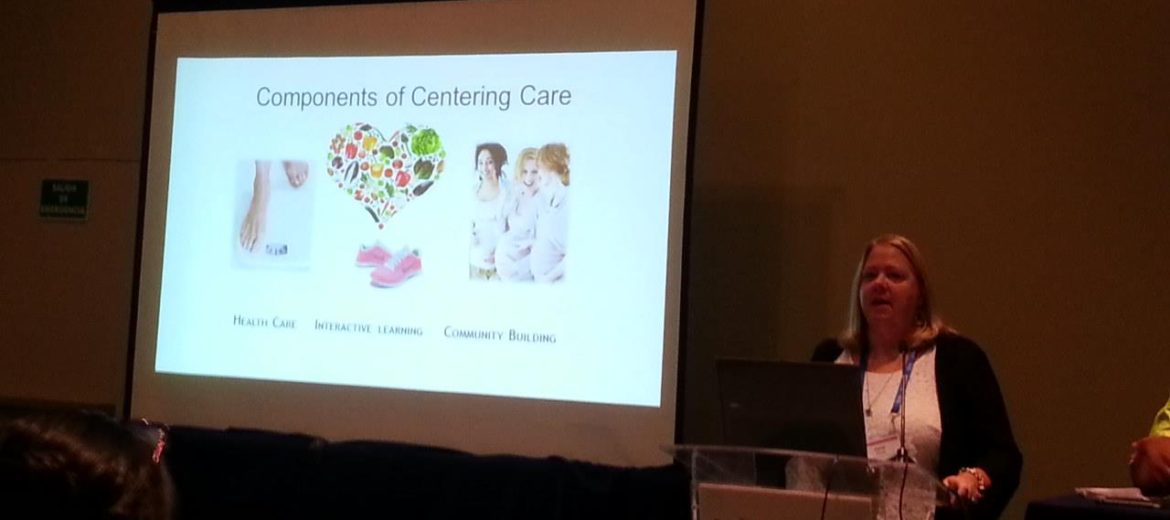“We discussed this internally but don’t feel we have the bandwidth to travel to Mexico” I wrote to small nonprofit in India, whose target population was very different – middle-class women in Delhi subject to over-intervention in maternity care rather than the most marginalized populations dying from access to care.
My doubts were quickly put aside in the Welcome Event. Geeta Rao Gupta’s moving address taught me the importance of investing in the hardest to reach populations as it gives the highest returns.
Geeta Rao Gupta recalls her grandmother's story of being married at 12, giving birth to 11 and losing 5.#GlobalMNH pic.twitter.com/t4Ru1BNEhC
— Abhishek Bhartia (@abhishek4q) October 19, 2015
In the opening ceremony, Melinda Gates reminded us that “collaboration is hard but you do it because of the power of collective action” and that “when health improves, lives improve by every measure”. From Babatunde Osotimehin I learned that for “adolescent girls to go and stay in school requires access to family planning”. Lastly, Hans Rosling exhorted us to have an evidence-based view of the world, give up irresponsible structural racism and celebrate the successes of countries!
Biggest change of our times is fall in babies per woman in the world! #GlobalMNH pic.twitter.com/HkdnreGZLN
— Abhishek Bhartia (@abhishek4q) October 19, 2015
In the first panel session I came across stories of how innovative organizations were leveraging mobile technologies for impact at scale. Aparna Hegde’s mMitra platform was reaching out to women in urban slums of Mumbai at a cost of only $5 for two years of antenatal and infant care!

In another panel I learned how Centering Pregnancy, a form of group antenatal care, was being spread to developing countries from Malawi to Nepal – improving quality of health care, promoting interactive learning and building communities.

On a panel that highlighted efforts to maintain appropriate Caesarean section rates and delivery, I presented my organization’s journey of reducing Caesarean sections. On this panel was Paulo Borem, who is currently working with 42 hospitals in Brazil to bring down the Caesarean rate from the existing level of 80% – a rate not very different from our own situation 15 years ago!
There were attendees from 75 countries and some of the most rewarding experiences came from informal interactions over meals and coffee breaks. Hearing Dr Shershah Syed describe his hospital in Karachi as being midwife-led was a real inspiration as we look to start our own journey of training midwives in Delhi. I valued interacting with Moses Kitheka from Kenya and Cyril Dim from Nigeria, as they were both from countries that I have never visited. I was also grateful to have the opportunity of speaking with Prof Joanna Schellenberg of the London School of Hygiene and Tropical Medicine about our interest in collaborating with them for student thesis projects based in Delhi. Other highlights were meeting Drs Mathews Mathai of WHO and Harshad Sanghvi of JHPIIEGO and sharing the findings our maternity survey in Delhi with them.

While I was appreciative of being at the meeting, there were some who complained about it being an exercise of preaching to the converted. They had a point – many people, such as obstetricians in private and government service, who may have benefited from the meeting seemed to be underrepresented. I wondered if future meetings could specifically target “early adopters” from such underrepresented groups and as a strategy for increasing impact?
Overall GMNHC delivered on all counts of a great meeting – I gained new knowledge, formed new relationships, and came away inspired to do my bit in making the world a better place. Ana Langer closed the meeting saying “Next time at GMNHC we will hear how you progressed as a result of networks formed here” – I hope we will all have stories to share!

Edit: This post is a slightly revised version of the original, which can be found here – Abhishek Bhartia.

